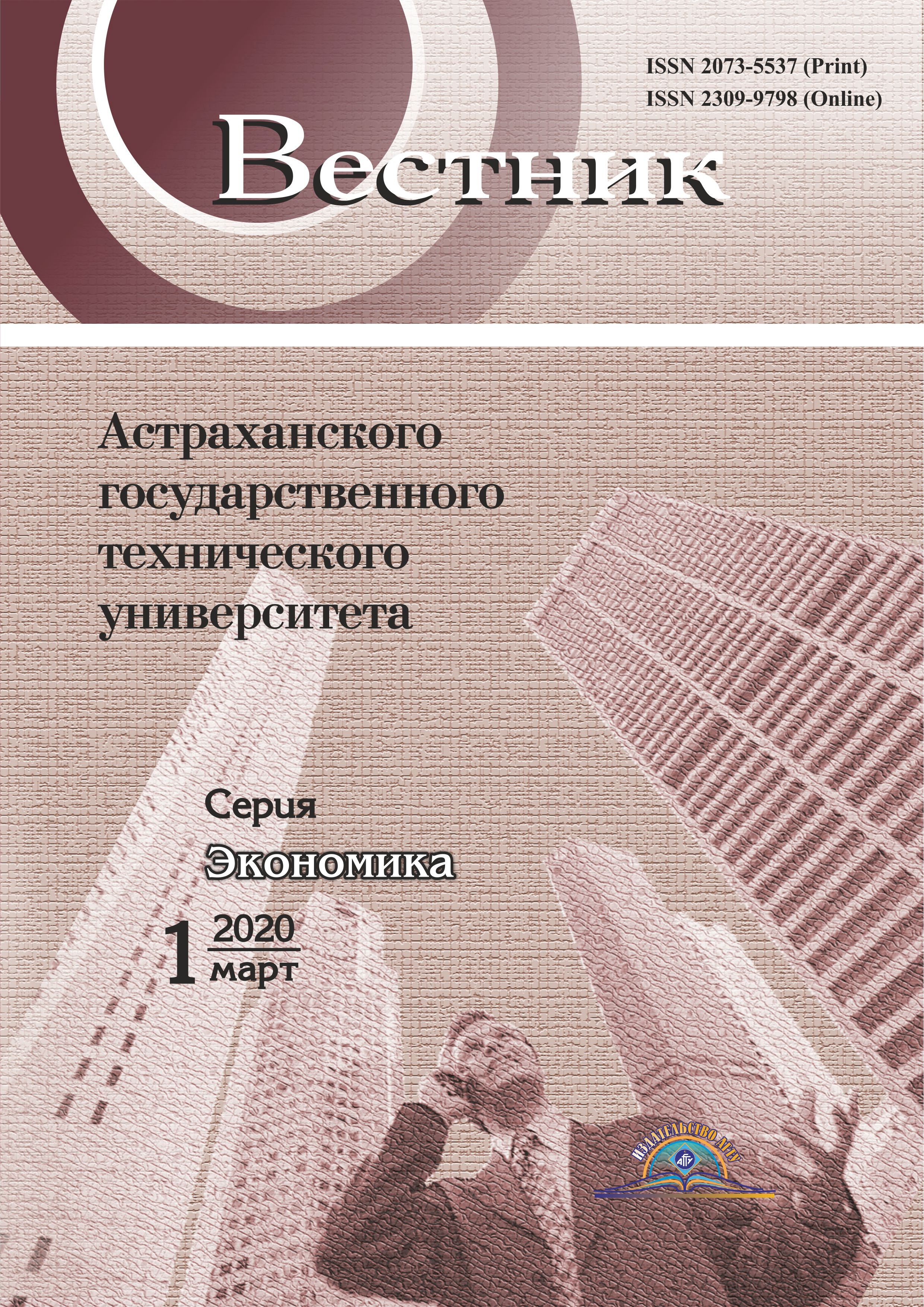Perm National Research Polytechnic University (Candidate of Economic Sciences, Assistant Professor; Assistant Professor of the Department of Economics and Finance)
Russian Federation
from 01.01.2016 until now
Perm', Perm, Russian Federation
VAK Russia 08.00.10
UDC 33
CSCSTI 06.52
CSCSTI 06.61
CSCSTI 06.81
CSCSTI 65.01
CSCSTI 82.01
CSCSTI 83.01
The article considers the social indicators which are increasingly becoming the subject of modern research as a condition and result of the development of modern socio-economic systems. Many researches emphasize the importance of analyzing the municipal level of the economy from the standpoint of maximum proximity to the population. The identification of cause-and-effect relationships of production and social processes at the level of municipalities has been stressed. They act as mediators between the macro dimensions of the social order and the micro reality of everyday life, allowing to measure the effectiveness of current socio-economic policies. According to the regulations of the recurrent approach, the system of indicators of the social cycle is verified at the level of municipal economic systems with a stepwise characteristic of their dynamics. The indicators are systematized into three groups: 1) borderline economic and social indicators; 2) indicators characterizing social processes; 3) resulting indicators that form the potential for further economic development of the municipal economic systems. The analysis of seven indicators of the dynamics of social processes in 22 industrialized municipalities in the period from 2005 to 2018 allowed to distinguish three groups of territories: territories-leaders; territories with average values; territories-outsiders. Each group of regions has basic trends that determine the dominant vector of development, cause-and-effect relationships between the groups characterizing the dynamics of the social cycle. It is stated that the identified dependencies can become the basis for the development of a management model of counter-cyclical social development of municipal socio-economic systems for the formation of conditions for further shifts in the information, innovation, technology and production cycles as components of the modern macroeconomic cycle.
social processes, social cycle, phases of social cycle, industrial type of economy, statistical analysis, municipal economy, grouping
1. Stiglic D. Neverno ocenivaya nashu zhizn': Pochemu VVP ne imeet smysla? Doklad Komissii po izmereniyu effektivnosti ekonomiki i social'nogo progressa [Misjudging our life: why does GDP make no sense? Report of the Commission on Measuring Economic Performance and Social Progress]. Moscow, Izd-vo in-ta Gajdara, 2016. 210 p.
2. Predlozheniya «Grazhdanskoj dvadcatki» po obespecheniyu uverennogo, ustojchivogo, sbalansirovannogo i inklyuzivnogo rosta: doklad [Civil G20 proposals for sustained, balanced, and inclusive growth: report]. Moscow, Logos Publ., 2013. 72 p.
3. Pezzoli K., Hibbard M., Huntoon L. Introduction to Symposium: Is Progressive Regionalism an Actionable Framework for Critical Planning Theory and Practice? Journal of Planning Education and Research, 2008, no. 28 (3), pp. 336-340. DOIhttps://doi.org/10.1177/0739456x08329711.
4. Golubchikov O. The urbanization of transition: ideology and the urban experience. Eurasian Geography and Economics, 2016, vol. 57, no. 4-5, pp. 607-623. DOI:https://doi.org/10.1080/15387216.2016.1248461. Available at: https://www.tandfonline.com/doi/full/10.1080/15387216.2016.1248461 (accessed: 06.12.2019).
5. Lappo G. M. Raznoobrazie gorodov kak faktor uspeshnogo prostranstvennogo razvitiya Rossii [Diversity of cities as factor in successful spatial development of Russia]. Izvestiya RAN. Seriya Geograficheskaya, 2019, no. 4, pp. 3-23.
6. Doklad o mirovom razvitii 2009. Novyj vzglyad na ekonomicheskuyu geografiyu [World development report 2009. New look at economic geography]. Moscow, Ves' mir Publ., 2009. 408 p.
7. Doklad o sostoyanii mestnogo samoupravleniya v Rossijskoj Federacii, perspektivah ego razvitiya i predlozheniya po sovershenstvovaniyu pravovogo regulirovaniya organizacii i osushchestvleniya mestnogo samoupravleniya [Report on local self-government in the Russian Federation, prospects for its development and proposals for improving legal regulation of organization and implementation of local self-government]. Moscow, 2017. 68 p. Available at: file:///C:/Users/PSU204a/Desktop/%D0%91%D0%90%D0%97%D0%A3%D0%95%D0%92%D0%90%20%D0%95.%D0%92/6849.pdf (accessed: 28.11.2019).
8. Mel'nikova L. V. Razmery gorodov, effektivnost' i ekonomicheskij rost [City sizes, efficiency and economic growth]. EKO, 2017, no. 7, pp. 5-19.
9. Rusanovskij V. A., Markov V. A., Brovkova A. V. Modelirovanie effekta prostranstvennoj lokalizacii v gorodskih aglomeraciyah Rossii [Modeling effect of spatial localization in urban metropolitan areas of Russia]. Ekonomicheskaya politika, 2018, vol. 13, no. 6, pp. 136-163.
10. European Spatial Development Perspective. Towards Balanced and Sustainable Development of the Territory of the European Union. Available at: http://ec.europa.eu/regional_policy/sources/docoffic/official/reports/pdf/sum_en.pdf (accessed: 28.11.2019).
11. Territorial Agenda of the European Union 2020. Towards an Inclusive, Smart and Sustainable Europe of Diverse Regions. Available at: http://ec.europa.eu/regional_policy/sources/policy/what/territorial-cohesion/territorial_agenda_2020.pdf (accessed: 28.11.2019).
12. Buhval'd E. M., Voroshilov N. V. Aktual'nye voprosy razvitiya municipal'nyh obrazovanij i reformirovaniya instituta mestnogo samoupravleniya [Actual issues of development of municipalities and reforming institution of local self-government]. Ekonomicheskie i social'nye peremeny: fakty, tendencii, prognoz, 2018, vol. 11, no. 1, pp. 132-147. DOI:https://doi.org/10.15838/esc/2018.1.55.9.
13. Poslanie Prezidenta Federal'nomu Sobraniyu ot 01.03.2018 g. [Message from the President to the Federal Assembly dated 03/01/2018]. Available at: http://www.kremlin.ru/events/president/news/56957 (accessed: 11.12.2019).
14. Axinte L. F., Mehmood A., Marsden T., Roep D. Regenerative city-regions: a new conceptual framework. Regional Studies, Regional Science, 2019, vol, 6, no. 1, pp. 117-129. DOI:https://doi.org/10.1080/21681376.2019.1584542.
15. World Future Council/Energy Cities. Imagine a regenerative city. Hamburg, 2014. 20 p. Available at: https://www.power-to-the-people.net/2015/02/imagine-a-regenerative-city/ (accessed: 11.12.2019).
16. Bazueva E. V. Social'nyj cikl kak rezul'tat transformacii proizvodstvennoj struktury social'no-ekonomicheskoj sistemy [Social cycle as result of transformation of production structure of socio-economic system]. Vestnik Astrahanskogo gosudarstvennogo tekhnicheskogo universiteta. Seriya: Ekonomika, 2018, no. 4, pp. 27-35.
17. Bazueva E. V., Butorina O. V., Tret'yakova E. A. Metodicheskij instrumentarij analiza social'nogo cikla na urovne regional'nyh social'no-ekonomicheskih sistem [Methodological tools for analyzing social cycle at the level of regional socio-economic systems]. Vestnik Ivanovskogo gosudarstvennogo universiteta. Seriya: Ekonomika, 2018, iss. 4 (38), pp. 59-73.
18. Butorina O. V., Osipova M. Yu., Kutergina G. V. Formirovanie sovremennogo makroekonomicheskogo cikla s pozicij global'nyh tendencij ekonomicheskogo razvitiya [Formation of modern macroeconomic cycle from perspective of global trends in economic development]. Vestnik Permskogo universiteta. Seriya: Ekonomika, 2017, vol. 12, no. 4, pp. 512-526. DOI:https://doi.org/10.17072/1994-9960-2017-4-512-526.
19. Doklad o razvitii chelovecheskogo potenciala v Permskom krae v 2009 g. [Human development report in Perm territory in 2009]. Available at: http://blog59.ru/wpcontent/themes/blog59 (accessed: 16.11.2009).
20. Bazueva E. V. Chelovecheskij kapital Permskogo kraya: gendernye osobennosti realizacii [Human capital of Perm region: gender specifics of implementation]. Ekonomika regiona, 2010, no. 2, pp. 46-59.
21. Minamimura K., Yasui D. From Physical to Human Capital Accumulation: Effects of Mortality Changes. Elsevier for the Society for Economic Dynamics, 2019, vol. 34, pp. 103-120. DOIhttps://doi.org/10.1016/j.red.2019.03.005.
22. Municipal'nye obrazovaniya Permskogo kraya. 2019: statisticheskij sbornik [Municipalities of Perm territory. 2019: statistical compilation]. Perm', Perm'stat Publ., 2019. 155 p.
















